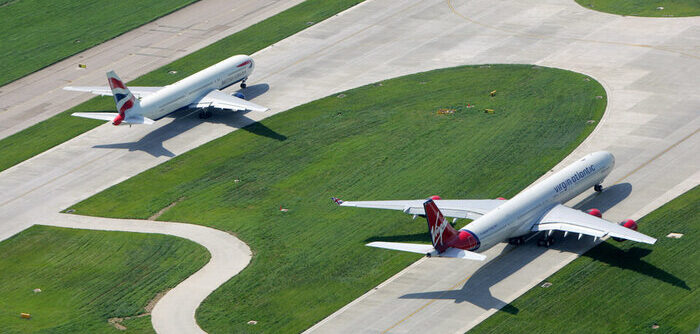London Heathrow Airport has implemented a passenger cap of 100,000 departing travelers each day, running from July 12 until September 11.
In a sign of the recovery of UK aviation, nearly six million passengers traveled through Heathrow in June, totaling 25 million passengers in the first six months of the year. Heathrow said that this was the equivalent of 40 years of growth in just four months.
In June, the DfT and CAA asked the aviation sector to review summer schedules, including implementing a slot amnesty to encourage airlines to remove flights without penalty, which will minimize disruption for passengers over the summer period.
Heathrow said that while some airlines had taken ‘significant action’, others had not, and it was now forced to impose restrictions to ensure service standards were met.
John Holland-Kaye, CEO at London Heathrow, said, “Over the past few weeks, as departing passenger numbers have regularly exceeded 100,000 a day, we have started to see periods when service drops to a level that is not acceptable: long queue times, delays for passengers requiring assistance, bags not traveling with passengers or arriving late, low punctuality and last-minute cancellations. This is due to a combination of reduced arrivals punctuality (as a result of delays at other airports and in European airspace) and increased passenger numbers starting to exceed the combined capacity of airlines, airline ground handlers and the airport. Our colleagues are going above and beyond to get as many passengers away as possible, but we cannot put them at risk for their own safety and well-being.
“Last month, the DfT and CAA wrote to the sector asking us all to review our plans for the summer and ensure we were prepared to manage expected passenger levels safely and minimize further disruption. Ministers subsequently implemented a slot amnesty program to encourage airlines to remove flights from their schedules with no penalty. We held off putting additional controls on passenger numbers until this amnesty process concluded last Friday and we had a clearer view of the reductions that airlines have made.
“Some airlines have taken significant action but others have not, and we believe that further action is needed now to ensure passengers have a safe and reliable journey. We have therefore made the difficult decision to introduce a capacity cap with effect from July 12 to September 11. Similar measures to control passenger demand have been implemented at other airports both in the UK and around the world.
“Our assessment is that the maximum number of daily departing passengers that airlines, airline ground handlers and the airport can collectively serve over the summer is no more than 100,000. The latest forecasts indicate that despite the amnesty, daily departing seats over the summer will average 104,000 – giving a daily excess of 4,000 seats. On average, only about 1,500 of these 4,000 daily seats have currently been sold to passengers, so we are asking our airline partners to stop selling summer tickets to limit the impact on passengers.
“By making this intervention now, our objective is to protect flights for the vast majority of passengers at Heathrow this summer and to give confidence that everyone who does travel through the airport will have a safe and reliable journey and arrive at their destination with their bags. We recognize that this will mean some summer journeys will either be moved to another day, another airport or be canceled, and we apologize to those whose travel plans are affected.”
Emirates was not happy with Heathrow’s decision, and issued a scathing response. Read more on that story here.


